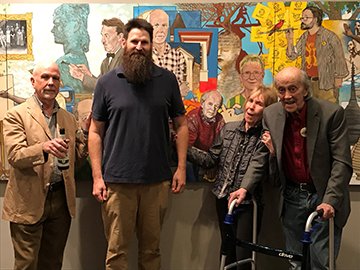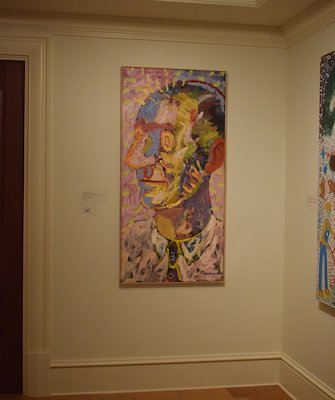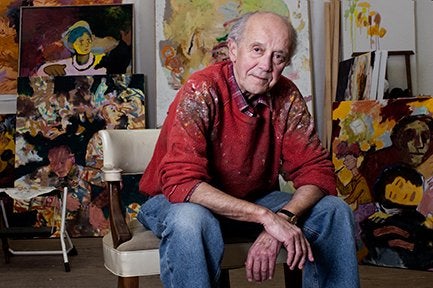While the artworld mourned a brilliant painter and art scholar, Augusta felt the loss of Philip Morsberger on a personal level as many considered the renowned artist a friend and mentor.
Morsberger, who was the Morris Eminent Scholar at Augusta University among his many titles, died Jan. 3 at the age of 87, from complications due to COVID-19.
[adrotate banner=”19″]
The Baltimore native discovered art as a child. His distinguished career saw him teaching at many institutions such as the Rochester Institute of Technology, the Carpenter Center for Visual Arts at Harvard University, Dartmouth College and the Ruskin School where he served as master of drawing for 13 years.
He retired from the California College of Arts and Crafts in 1996 and was named the Morris Eminent Scholar at Augusta University. He served in that capacity for five years, but after stepping down from that role, he decided to remain in the Augusta area.
“He loved Augusta more than any other place,” said Edward Rice, a North Augustan whose paintings have been exhibited internationally.

It wasn’t necessarily the city Morsberger loved as much as it was her people, he said.
Rice never ceased to be in awe of the friendship he cultivated with Morsberger over the almost 25 years he lived in the area. The two lived only a couple of blocks from each other.
“He was the Ruskin scholar at Oxford when I was a kid in North Augusta selling watercolors door to door,” he said.
While their styles were markedly different, the two had exhibitions together and often had pieces at the same galleries.
Morsberger wasn’t just supportive of Rice, he supported other artists in the community.
Jay Jacobs, the art teacher at Aquinas High School and the artist who created the Jessye Norman mural at the Jessye Norman School, said Morsberger had a profound effect on him before he had the opportunity to meet him.
He’d met some of Morsberger’s Augusta University students and wondered what made their art different.
[adrotate banner=”23″]
He often made treks to the Morris Museum of Art, where Morsberger’s 2000 painting Man With Necktie hangs.
“It was all the way in the back of the gallery,” he said.
He’d make a straight line to that painting and study its colors and brushstrokes.
The first time he met Morsberger in person Jacobs said he “fanboyed out,” but he found that Morsberger was kind, encouraging and everything Jacobs hoped he could ever be.
When Jacobs had his “The Remnants of Our Disappearing” exhibition at the Gertrude Herbert Institute of Art in May 2019, one of the works was a large one depicting Augusta area residents who’d made an impact on the Augusta’s art landscape. Among them were Morsberger and Rice.
“When (Morsberger) walked in, I couldn’t believe he showed up,” said Jacobs, who painted Morsberger from an often-used image of the artist in a paint-spattered red sweatshirt.

That painting hangs at the Community Foundation for the Central Savannah River Area’s office at Sutherland Mill, he said. The “Man With a Necktie” still hangs at the Morris Museum of Art but in a gallery closer to the lobby beyond the portrait gallery. The museum also has Morsberger’s painting of former Augusta University president William Bloodworth in its storage area.
Morsberger painted almost until his death, according to Rice.
“He saw his painting as a form of prayer,” said Rice.
Although Morsberger had physical pain from ailments in his body, he refused to take pain medications because he felt they blocked his creativity.
While his art will be missed, his presence will be missed more.
Kevin Grogan, the Morris Museum of Art’s executive director, issued a statement after Morsberger’s death.
In it, he wrote “Philip Morsberger was blessed with many gifts – his extraordinary curiosity and creativity, both of which sustained his skills as an artist, were only the most obvious, so naturally, they are the immediate focus when his name comes up. But his interests were protean and encompassing. Perhaps his greatest gift was friendship. No one enjoyed friendship more than Philip, and no one ever made and kept as many friends as he. He found commonality with, well, everyone. His kindness and generosity of spirit were innate and unsurpassable.”
A memorial service will be held at a later time.
Charmain Z. Brackett is the Features Editor for The Augusta Press. Reach her at charmain@theaugustapress.com
[adrotate banner=”15″]













